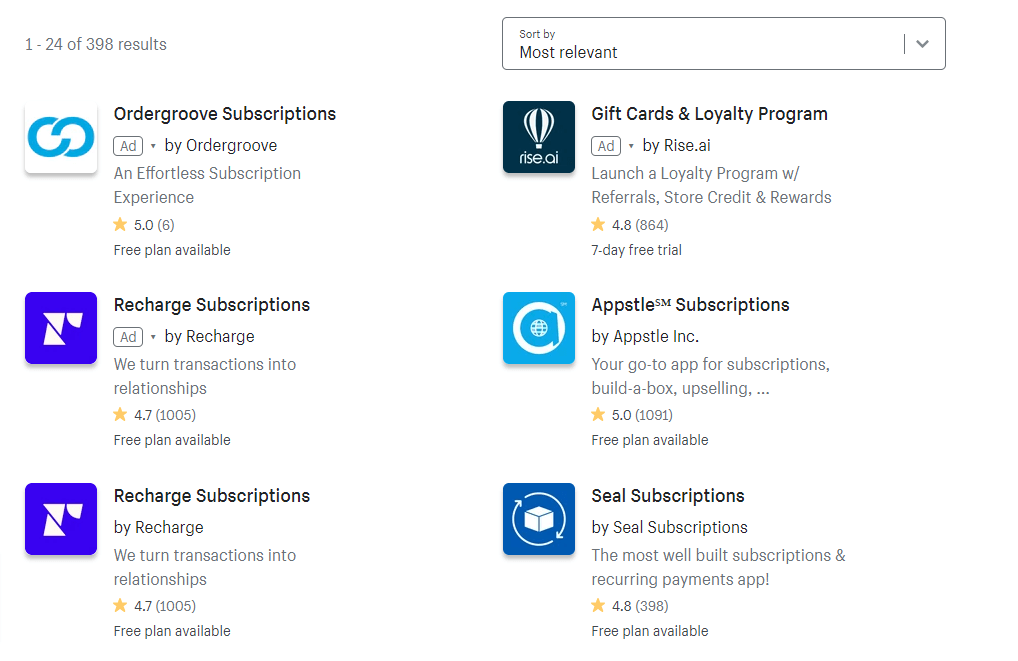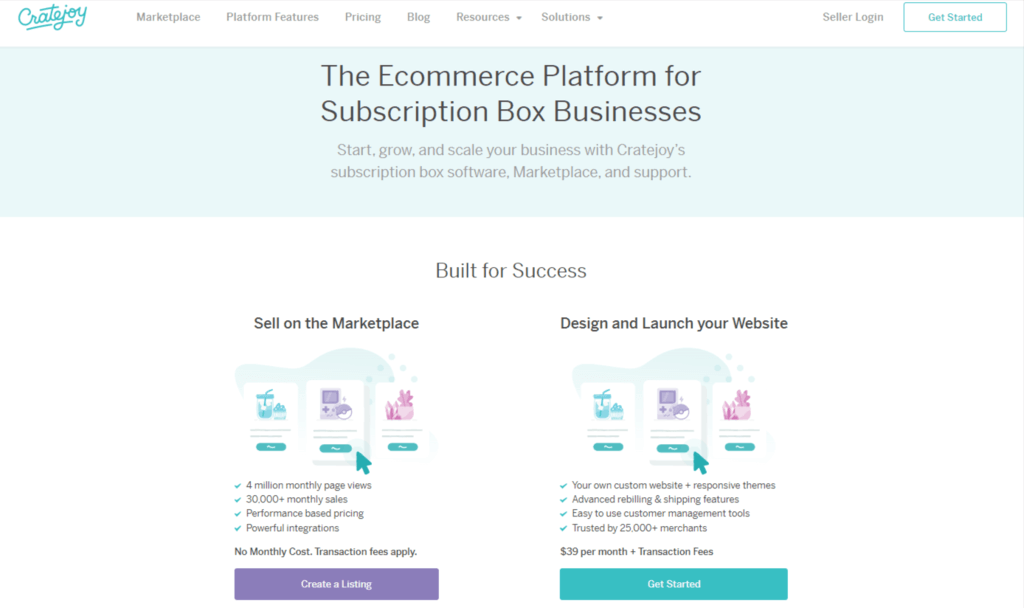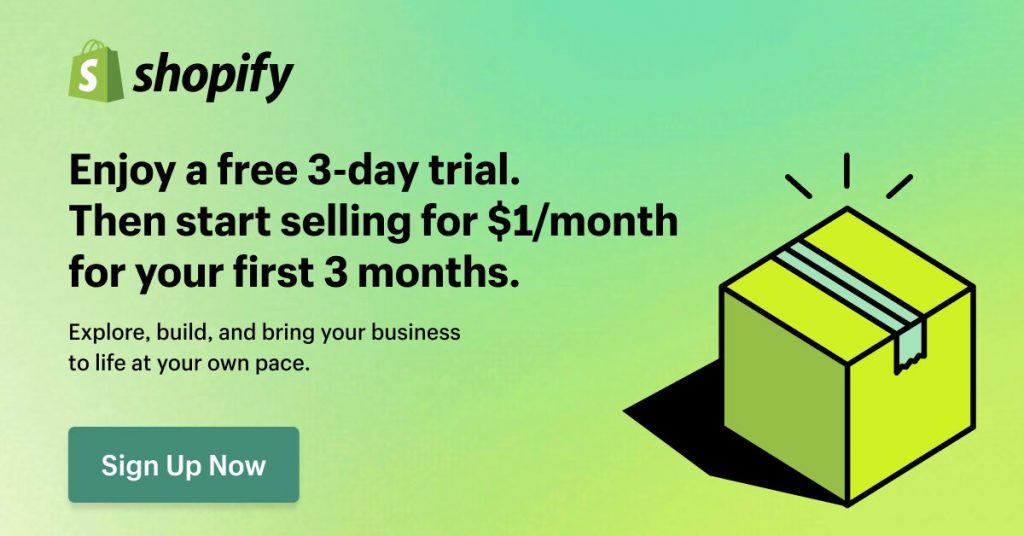10 Best eCommerce Subscription platform in 2025 (Pros & Cons)

The rapid expansion of eCommerce in the past few years has inevitably fueled the rise of many new business models, in which subscriptions seem to be the one that will change our digital shopping habits. The subscription e-commerce platform market is projected to expand by USD 899.5 billion, with a compound annual growth rate (CAGR) of 79.11% from 2023 to 2028.
In this article, we will look at the best eCommerce subscription platform with detailed pricing and key features that help you decide the best one for your store. Whether you are new to eCommerce subscription or your business has been running for a while, this article is for you.
>> See more:
- 14 Best eCommerce Marketplaces with highest buyer in 2025
- 9 Best Ecommerce Niches in 2025 for Growing Potentials
- Best Ecommerce Platforms Fully Compared + Ranked in
Subscription-First vs Plugin-Based eCommerce Subscription platform
At the moment, there are two main types of eCommerce platforms for subscriptions. The first one is major eCommerce platforms that can integrate with subscription & recurring payment options to perform subscription services. This type of platform helps you sell one-time purchase products and subscription products at the same time.
The other platform type is the one that is natively built for subscription service, so they have quite a lot of built-in features that help you run subscription eCommerce smoothly. These are key differences of them:
| Feature | Subscription-First Platform | Plugin-Based Platform |
|---|---|---|
| Core Functionality | Built specifically for subscriptions; core features are native to the platform. | Relies on plugins or extensions to add subscription functionality to an existing ecommerce platform. |
| Customization | May offer built-in customization options but could be limited by the platform’s structure. | Can offer extensive customization through various plugins but might require technical expertise to manage. |
| Integration | May have limited integrations depending on the platform’s focus. | Can potentially integrate with a wide range of third-party apps through plugins. |
| Ease of Use | Typically designed for user-friendliness and intuitive subscription management. | Can be complex to set up and manage, especially with multiple plugins. |
| Scalability | Often built to handle high volumes of subscriptions and growth. | Scalability can be limited by the underlying ecommerce platform and plugin capabilities. |
| Cost | Can have higher upfront costs but may offer better value long-term for subscription-focused businesses. | Initial costs might be lower, but the cost of multiple plugins can accumulate. |
| Examples | Recharge, Subbly, Cratejoy | Magento, Shopify, WooCommerce… with subscription plugins |
Based on this comparison, we can see the importance of selecting a platform that aligns with specific business needs, including scalability, customization, and integration capabilities. For example, a business with complex subscription models and a need for extensive customization might benefit from a plugin-based approach, while a business prioritizing ease of use and streamlined subscription management might prefer a subscription-first platform.
Best eCommerce platforms for subscriptions
Platform | Key Feature(s) | Price | Best For |
Magento | Open-source, highly customizable, relies on extensions for subscriptions. Offers two options: Magento Open Source (free) and Magento Commerce (premium) | Open Source: Free; Commerce: Starting at $22,000/year | Businesses seeking extensive customization and scalability; users with technical expertise. |
Shopify | User-friendly, large app ecosystem, various subscription apps available. | Basic: $29/month; Shopify: $79/month; Advanced: $299/month | Beginners and businesses of all sizes; those seeking ease of use and a wide range of integrations. |
Wix | Simple drag-and-drop builder, built-in subscription features for higher-tier plans. | Business Basic: $17/month; Business Unlimited: $25/month; Business VIP: $35/month | Small businesses and solo entrepreneurs; those seeking an affordable and easy-to-use platform. |
BigCommerce | Focuses on mid-market and enterprise-level businesses, integrates with top payment providers for subscriptions. | Standard: $29.95/month; Plus: $79.95/month; Pro: $299.95/month; Enterprise: Contact for pricing | Growing and scaling businesses; those seeking advanced built-in tools and flexible payment options. |
Shift4Shop | Customer-centric design, rich built-in subscription features across all plans. | Basic Store: $29/month; Plus Store: $79/month; Pro Store: $229/month | Novices and businesses seeking a Shopify alternative with strong subscription features included. |
Squarespace | Visually appealing templates, easy-to-use website builder, subscription features available only on the Advanced Commerce plan. | Personal: $12/month; Business: $18/month; Basic Commerce: $26/month; Advanced Commerce: $40/month | Businesses seeking a visually appealing platform; those comfortable with a limited payment processor option (Stripe only for subscriptions). |
WooCommerce | Open-source plugin for WordPress, requires add-ons for subscriptions, highly customizable. | Free to install (WordPress plugin), but costs for hosting, themes, and extensions apply. Subscription add-ons are billed annually. | Businesses seeking a cost-effective and customizable solution; those familiar with WordPress. |
Subbly | Subscription-first platform, built-in features for subscription management and website building. | Lite: $19/month; Basic: $39/month; Subbly: $79/month; Advanced: $159/month | Businesses focused solely on subscription services; those seeking an all-in-one platform for subscriptions. |
Recurly | Enterprise-grade subscription management and billing platform, extensive integrations, robust analytics. | Core: $249/month + 0.9% of revenue; Professional & Elite: Contact for pricing | Larger businesses with complex subscription models; those seeking a comprehensive solution with advanced features. |
Cratejoy | Specialized for subscription box businesses, offers both a platform and a marketplace for selling subscription boxes. | $39/month + transaction fees | Businesses specifically selling subscription boxes; those looking to leverage a dedicated marketplace. |
Major eCommerce platforms with subscription & recurring payment options
1. Magento

Magento is one of the most popular eCommerce platforms with around 10,000 stores ranked in Builtwith TOP 1M websites, and also an excellent eCommerce subscription platform we can consider.
Being an open-source eCommerce platform with built-in PHP, Magento is long praised for its endless potential for customization and scalability. Magento offers two available options:
- Magento Open Source: completely free for download and installation, but you need to cover the cost of hosting, domain, and some other fees.
- Magento Commerce: a premium version of Magento Open Source. This version is designed for those in need of a full-featured eCommerce solution.
Pricing
- Magento Open Source: Free
- Magento Commerce: from $22,000/year
Natively, Magento does not support subscription services, so you have to rely on an extension from Magento Marketplace that can offer you subscription features.

There are loads of Magento subscriptions & recurring payments extensions on the marketplace with various pricing, ranging from $299 to $1,400. These extensions help your customers to subscribe to products, and the recurring payment and reorder will happen automatically. For most extensions, you only have to pay the extension fee once and you don’t need to renew your payment for the next period. Though the features of each extension may vary, the core usage of Magento subscription extensions is quite similar.
- Fully compatible with Magento 2 Open Source and Magento 2 Commerce
- Create & manage different subscription plans
- Manage & edit all customers and subscription information
- Special offers for subscriptions: free shipping, free trials, discounts, etc.
- Different payment methods available
Pros:
- Tons of available subscriptions extensions in the Magento Marketplace.
- No additional fee for subscriptions extension.
- The number of payment gateways varies depending on the extension provider.
Cons:
- Some extensions’ pricing is too high.
- You may have to pay for development costs if you don’t have much technical expertise.
If you are thinking of starting your own subscription business and believe that Magento will be your platform of choice, let us help you build your store.
2. Shopify

Shopify is by far the most popular eCommerce platform with around 1.75 million active merchants. Shopify has been initially acknowledged as the most user-friendly platform for start-ups and SMEs thanks to being a Software-as-a-Service (SaaS), but now it has grown to provide a comprehensive platform solution for both small businesses and big enterprises.
Shopify is also famous for its huge apps collection with more than 6,000 publicly available apps across the Shopify App Store. Therefore, it is definitely a good eCommerce platform for subscriptions.
Pricing: After 3 months for $1 trial, you can choose to continue with 3 different plans. Be noted that Shopify payment includes both monthly fee and transaction fee for each completed order at your online store.
- Basic: $25/month
- Shopify: $65/month
- Advanced: $399/month
Similar to Magento, Shopify is not a native eCommerce subscription platform. However, there are many Shopify apps that you can easily integrate with your Shopify store to offer subscriptions services. These apps help you set up your subscription program in minutes, automatically collect recurring payments, and manage subscriptions with ease. Depending on the app pricing, there are many additional advanced features to leverage your Shopify subscription service, such as segment-based plans, targeted upselling, etc.

Below are some best-rated subscriptions apps at the Shopify app store. All these apps offer free plans so you can experience each app on your own to figure out which one is most suitable.
- Appstle Subscriptions ⭐5.0 (1,090+ reviews)
- Recharge Subscriptions ⭐4.7 (1,000+ reviews)
- Seal Subscriptions ⭐4.8 (400+ reviews)
- Bold Subscriptions ⭐4.4 (250+ reviews)
- Subscription by BSS ⭐ 4.8 (14+ reviews)
Pros:
- Completely beginner-friendly. No learning curve.
- A wide range of subscriptions apps with various additional features.
- Many payment gateways and integration available.
Cons:
- Some apps’ pricing goes with a transaction fee, which might increase your total cost.
=>> Read more: Magento vs Shopify comparison
3. WIX

Wix is a popular CMS with a simple drag and drop builder that helps anyone build a magnificent website without any technical expertise involved. Wix eCommerce offers a hosted solution that is destined to be easy to start and user-friendly so that even small business or solo entrepreneurs can start their own subscription site without spending a huge amount of money on hiring a team of devs.
Pricing
- Business Basic: $17/month
- Business Unlimited: $25/month
- Business VIP: $35/month
Currently, Wix has offered product subscription features for Business Unlimited and Business VIP Plan. This is a built-in feature, so you don’t have to pay any additional fee. You can start offering a product only as a subscription or let customers choose between one-time purchases or select the right subscription options.

Pros:
- Easy to use. No coding skills required.
- Affordable price plans. No additional fee.
- Flexible subscription options.
Cons:
- Limited payment providers for recurring payments. Currently, Wix supports only 6 payment providers: Wix Payments, Wix Payment Brazil, Isracard, Stripe, and PayPal.
4. BigCommerce

BigCommerce is a hosted eCommerce platform that aims at providing mid-market and enterprise-level commerce solutions. Being a SaaS solution, BigCommerce provides everything you need to run your eCommerce store with its all-in-one solution. Since BigCommerce focuses on top commerce features, it’s a great eCommerce platform for subscriptions, especially for businesses that are growing and scaling fast.
Pricing: There is no transaction fee for all plans.
- Standard: $29.95/month
- Plus: $79.95/month
- Pro: $299.95/month
- Enterprise: Contact
Though BigCommerce doesn’t include built-in subscription features, they partner with the best-in-class payment technology providers to help you seamlessly integrate subscription services & recurring payments at your store. You simply choose the payment provider that best suits your business and starts offering subscription products in no time with click-to-install apps.

Pros:
- Ready-to-use eCommerce platform. Advanced built-in tools for SEO & business growth.
- Reasonable plans with no additional fee.
- Flexible payment processor options.
Cons:
- You need to upgrade to a more expensive plan if you reach a specific sales amount.
5. Shift4Shop

Shift4Shop is another great SaaS subscription box platform. Designed with customer-centricity in mind, Shift4Shop strives to be the popular platform for novices who want to start their own online business. Its intuitive dashboard, customizable themes, and great SEO tools make it a great Shopify alternative.
Pricing:
- Basic store: $29/month
- Plus store: $79/month
- Pro store: $229/month
One distinguished advantage of Shift4Shop compared to other platforms is its rich built-in features specialized for subscription business. Subscribers of all plans can enjoy this feature without worrying about additional fees, as all subscription apps are free for Shift4Shop members. Shift4Shop gives you everything you need to start selling subscription box right away:
- Full recurring order system
- Secure & automatic recurring billing
- Tokenized payment gateways
- Full reports on all subscriptions
- Customer account and subscription management
- Flexible discounts for subscribers
Pros:
- Ready-to-use built-in subscription tools.
- Integration with a large variety of payment processors.
- You are able to sell all kinds of subscription products.
Cons:
- You will be charged a monthly transaction fee.
6. Squarespace

Initially, Squarespace is a powerful SaaS-based CMS that offered an easy-to-use website builder and blogging platforms. Squarespace has taken advantage of CMS to introduce Squarespace Commerce for those who want to stand out in the eCommerce market with many eye-pleasing templates and some solid commerce features.
This platform supports beginners to build the perfect store in no time with its drag-and-drop functionality, SEO tools, and blogging capabilities. Even if you have no design or coding skills, Squarespace is still a great eCommerce subscription platform that you can utilize.
Pricing:
- Personal: $12/month
- Business: $18/month
- Basic Commerce: $26/month
- Advanced Commerce: $40/month
Squarespace only enables Squarespace Subscriptions for users of Advanced Commerce plan without any additional costs. Squarespace Subscriptions will help you:
- Create & manage a subscription product
- Fulfill a subscription renewal
- Manage and edit subscribers
- Collect payment automatically
- Handle failed payments

Pros:
- A comprehensive set of tools sufficient to start selling subscriptions without any extensions.
- Easy to use.
- No additional fee.
Cons:
- Subscription plan only available for Commerce Advanced Plan.
- You can’t sell digital products.
- You can only sell subscription products using Stripe as your payment processor.
7. WooCommerce

Technically, WooCommerce is not an independent eCommerce platform. It is a plugin for selling online of WordPress – #1 website builder and the most popular CMS. As a WordPress plugin, WooCommerce provides your WordPress website with all functionalities and features to run an online business.
Being an open-source platform, WooCommerce gives users great customizable ability while still being beginner-friendly, so it is a great choice for aspiring business owners. Besides, it is free to install, and you only have to pay for the hosting, theme, and extensions to build a fully functional store. In terms of popularity, WooCommerce is the first runner-up behind Shopify.
If you want to save up on monthly platform fees, WooCommerce is definitely a great eCommerce platform for subscriptions to think about.

Once you have your WooCommerce store ready, you will need to install a plugin to enable the subscriptions program. There are some add-ons available that you can easily install to your WooCommerce stores, such as WooCommerce Subscriptions and All Products for WooCommerce Subscriptions. The former add-on by WooCommerce lets customers subscribe to your products or services and pay regularly, while the latter offers your existing products with subscriptions service. All addons for WooCommerce are billed annually with 30-day money-back guaranteed
Pros:
- Highly customizable website.
- Integration with over 25 payment gateways.
- Easy to start and manage a subscription program.
- Users can switch between subscription plans without any hassle.
Cons:
- There are some complaints about customer service when having trouble with WooCommerce subscriptions addons.
- The number of subscription addons is still limited. There are not many options to consider.
- The fee is quite high. If you want to offer both one-time purchase and subscription services for a product, you need to install both two mentioned above add-ons.
eCommerce platforms natively for subscription-based business
8. Subbly

Subbly is an e-Commerce subscription software that now powers more than 9000 businesses to collect subscription revenue. While the above-mentioned platforms such as Shopify and Magento require an extension or app to enable subscription program, Subbly offers all built-in features for you to start your subscription services by effortlessly dragging and dropping available elements. If you already sell products on another eCommerce website, you can easily integrate Subbly’s checkout to your existing store as well.
Features:
- Powerful and comprehensive sets of eCommerce tools to start your own subscription website.
- Flexible subscription billing: Subbly offers a powerful subscription billing engine to automatically collect payments, customize shipping cycles & billing, set up trial periods, and more.
- Intuitive website builder for a hassle-free experience.
- Customize the website for business & branding purposes.
- Built-in tools and solutions to support business growth and marketing.
- Effortlessly manage and support customers with a full CRM (Customer relationship management) system.

Pricing: All plans go with transaction fee. Besides, your payment gateway may charge fees that are not included in Subbly’s fees.
- Lite: $19/month
- Basic: $39/month
- Subbly: $79/month
- Advanced: $159/month
Pros:
- Built-in subscription features. No extension required.
- Cheap and flexible plan pricing.
- Excellent support team.
- Various native features to easily build and run an eCommerce website.
Cons:
- There are not as many commerce features as other native eCommerce platforms.
- Not many third-party payment gateways available.
- As Subbly is relatively new, you have limited choice to integrate with other third-party services.
9. Recurly

Recurly is one of the best-known native eCommerce subscription service that is used by thousands of companies worldwide. They provide an all-in-one subscription management and billing platform to help you start your subscription business in weeks and make changes in minutes. Their built-in set of tools that are well-made for the rapidly-growing subscription market can help you start fast and amplify your business success in no time.
Features:
- Subscription management: The subscription business is constantly evolving. Recurly let you try and experience the model that best fits your business and subscribers.
- Billing and payments: Automatically send recurring billing and collect recurring payments. Currently, Recurly has integrated with 21 payment gateways.
- Analytics: Get a full list of reports and analytics that gives you real-time insights into how your subscription business is performing.
- Integration made simple: There are a variety of third-party extensions and tools that you can integrate with your Recurly to enable a frictionless business workflow.

Pricing:
- Core: $249/month + 0.9% of revenue
- Professional: Request pricing
- Elite: Request pricing
Pros:
- Easy to set up & start.
- Built-in subscription platform plus additional commerce features.
- Integration with the majority of leading credit card processors and gateways.
- Excellent support team.
Cons:
- High pricing with transaction fee.
10. Cratejoy

Cratejoy is a specialized ecommerce subscription solution, designed for businesses in the subscription box industry. It serves as both a user-friendly platform for building subscription box businesses and a thriving marketplace to connect sellers with customers.
Subscription boxes deliver curated items to customers’ doors each month, offering variety while sticking to a consistent product theme. This element of surprise and personalization keeps customers engaged and loyal.
Cratejoy simplifies launching a subscription business. Its ready-made templates and built-in tools streamline setup, optimize conversions, and drive growth. Not ready to build your own website? Their marketplace is an excellent way to test the waters before fully committing.
For entrepreneurs seeking the best platform for subscription business, Cratejoy stands out with its blend of tools and market reach.
Features:
- Customizable subscriptions: Have full control over the types and variations of subscription box at your store. You can give discounts to customers who resubscribe, and provide them with options for renewal dates.
- Management dashboard: The intuitive dashboard is powerful with a comprehensive subscriber account management section, yet still easy to navigate.

- Built-in marketing options: A variety of ready tools for you to enhance business performance at your store.
Pricing: $39/month + transaction fee
Pros:
- Reasonable pricing.
- Easy to use with an intuitive interface and ready-to-use templates.
- Advanced analytics & tools for subscription business.
Cons:
- Slow customer support process: There is no telephone support or live chat.
- Limited payment processors & third-party apps.
Successful examples of subscription-based eCommerce business
Nativecos.com

Native adopts an ecommerce subscription model to deliver personal care products made with safe ingredients. Recognizing that these products require regular replenishment, Native’s subscription service helps customers save 15% and choose flexible delivery intervals.
The platform offers a clean, intuitive customer portal to manage subscriptions and loyalty rewards. Combined with a seamless, responsive website, Native ensures a smooth shopping experience tailored for convenience and satisfaction.
IPSY.com

Ipsy is a popular subscription-based eCommerce service offering skincare and makeup products. For just $13 a month, subscribers receive five curated beauty items. The service’s flexibility—you can cancel anytime—has contributed to its rapid growth. Its appeal lies in letting customers start small, creating an accessible way to explore new beauty products monthly without significant commitment.
For anyone considering launching a subscription platform for business, it’s vital to experience the process firsthand. Use free trials to evaluate how an eCommerce subscription service operates. This hands-on approach helps you assess its practicality and potential to drive customer engagement and boost profits. After exploring, share your insights on how these platforms support your business growth—we’d love to hear how your subscription model thrives.
FAQs about eCommerce subscription platform
What are eCommerce subscriptions?
eCommerce subscriptions are a business model where customers pay a recurring fee, typically monthly or annually, to receive products or services regularly. This model provides a predictable revenue stream for businesses and offers convenience and personalization for customers.
What are subscription platforms?
Which platform is best for subscriptions?
Choosing the best ecommerce platform for subscriptions depends on your business type and goals. For ecommerce subscription models, platforms like Upscribe and Subbly excel in creating tailored subscription boxes. If managing recurring billing across industries is your focus, consider Recurly or Chargebee for their robust features. Evaluate options based on features, cost, and ease of use to match your needs. Transitioning to the right platform can streamline your subscription-based ecommerce operations and enhance customer retention.
Wrapping up

